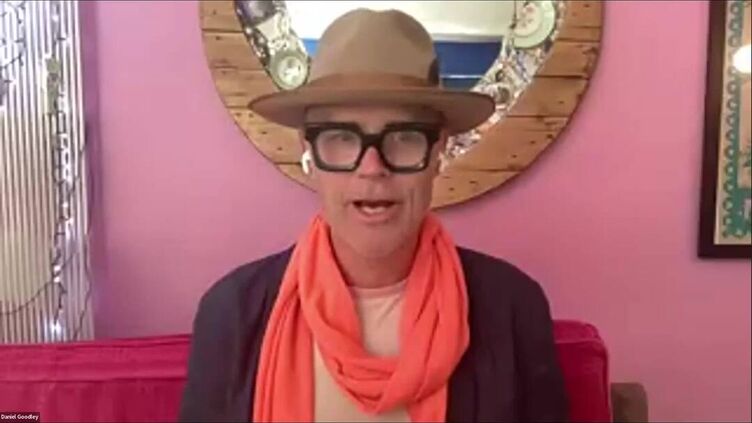Online Symposium in Singapore
Papers delivered on 5th June 2024 by Heng, Lim, Soh with response from Wong
Recording: https://zoom.us/rec/share/Bn9y7JGqXOHXICfkiirZMX0qSmx90yI-w6he0vxzpfJvsRC17KepUx4gcaVAwfy_.qkGUtGLGfkYbpF-S
Passcode: =Q0hfYB7
The impact of disability studies on scholarship and advocacy. Speakers Kerri Heng, Shalom Lim, Max Soh, Meng Ee Wong
A key ambition of Disability Matters is to make disability the driving subject of research. One element of our programme promotes scholarship that demonstrates the contribution of disability studies to a host of fields and disciplines. Over the next six years we are running a number of short and accessible online symposia that address a general question:
How is health research, theory and scholarship transformed by an engagement with critical disability studies?
Introduction by Dan Goodley
Welcome to the sixth Online Symposium of Disability Matters: A major six year pan-national programme of disability, health and science research, funded by a Wellcome Trust Discretionary Award. I’m Dan Goodley - the Principle Investigator - and I work in the iHuman research institute at the University of Sheffield. I’m a white, early 50s, cisgendered bald man wearing fabulous clothes, many of them sewn by my own fair hands. My preferred pronouns are he/him. I am a member of the TAB community. A key ambition of Disability Matters is to make disability the driving subject of research. One element of our programme promotes scholarship that demonstrates the contribution of disability studies to a host of fields and disciplines. Over the next five years we are going to run a number of short and accessible online symposia. This is our sixth one and we are delighted with our presenters and thank them for their participation. Our symposia, this year, are addressing a general question:
How is health research, theory and scholarship transformed by an engagement with critical disability studies?
The format of the symposium will be:
● Three presentations (10 minutes x 3) - Dan will introduce each before their presentation and presenters will give an audio-description and preferred pronouns
● Q&A and Discussion - 30 minutes
For access we are committed to sticking to time.
Housekeeping and access
● Those attending today will have been sent a link to the website in which the papers are published, so you can follow as our speakers present. You’ll also find this link in the chat.
● Having cameras on is completely optional.
● If you wish to access English live captioning, you can turn this on by clicking the Live Transcription option in the meeting toolbar below.
● The symposium will be recorded and made available on the Disability Matters website.
● There will be an opportunity for the audience to ask questions - these will be followed up at the end during the Q&A / Discussion portion.
● Please direct questions to the Q&A box in the toolbar below. These will then be read out loud later on.
● If you feel you need to leave the call at any point for any reason you are free to do so.
Speakers
Kerri Heng, Nanyang Technological University
Kerri Heng is passionate about qualitative research in disability and mental health. A recent graduate of the Master of Arts in Sociology programme at Nanyang Technological University, her Master's thesis examined disabilities, identities, and employment experiences in Singapore. For her undergraduate honours thesis, she studied the social barriers faced by university students with hearing loss in Singapore. In the near future, Kerri hopes to pursue a PhD in Public Health, Sociology, or Medical Anthropology.
Title: Travelling from Goffman to the social model of disability and social constructionist approach to disability: My journey as a budding researcher with disabilities.
Shalom Lim, Independent researcher
Shalom Lim is a 28-year-old disability advocate, artist, and author who serves as a committee member on the board of management at the Disabled People's Association in Singapore. He identifies both as a mobility-impaired person and neurodivergent individual due to his double diagnosis of muscular dystrophy in childhood and inattentive ADHD in adulthood. A critical criminology graduate from the University of Liverpool in Singapore, he currently aspires to be a playwright and researcher specialising in disability issues and holds a deep passion for critical disability studies from his experiences of systematic ableism in mainstream society.
Title: From Stigma to Strength: How Disability Studies Shaped My Journey.
Max Soh, Disabled People’s Association, Singapore
Max Soh is the Research and Policy Manager at the Disabled People's Association (DPA) Singapore. He joined DPA in 2021 and oversees the organisations various research and policy initiatives - such as conducting original research for the organisation, authoring articles and reports on relevant policy developments facing the disability community in Singapore, and organising educational initiatives through webinars and media outreach and collaborations. In addition to being disabled himself (visually impaired since birth), Max brings experience with disability and disability advocacy through his prior involvements with disability organisations especially internationally.
Title: An Opportune Time for the Expansion of Disability Studies in Singapore

iHuman
How we understand being ‘human’ differs between disciplines and has changed radically over time. We are living in an age marked by rapid growth in knowledge about the human body and brain, and new technologies with the potential to change them.

